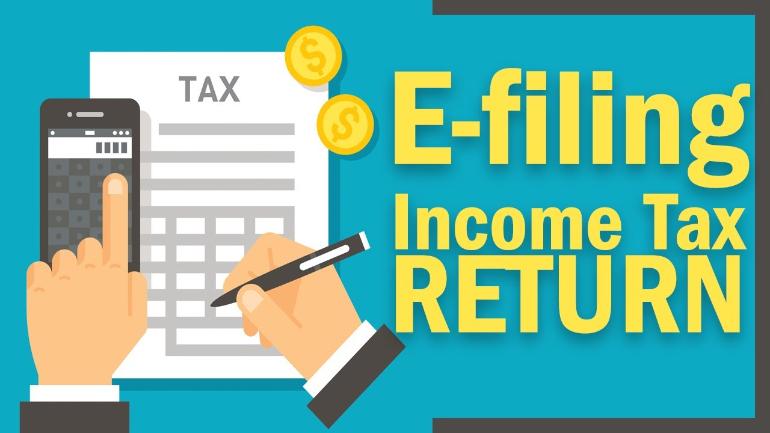Recently the official announcement regarding the availability of the most common income tax return forms for AY 2019-20 was shared by the Income Tax Department. For the average tax assessed, it simply means that the income tax e-filing season has officially begun. Even then, there are those among us who are likely to procrastinate and end up making a mad rush to the finish line close to or on the tax filing deadline of 31st July 2019. The following are 5 tips to ease the process of income tax return filing for the 2018-19 fiscal.
- Start Early to file tax returns with ease
Obviously, the most common problem with a wide section of income tax assessees in India is that of waiting till the last moment to file taxes. This can cause quite a few issues including but not limited to errors/omissions in filing and inability to file due to excessive load on the official Income Tax e-filing website. In case of many salaried individuals, a reason for the delayed filing is the unavailability of Form 16 from the employer till close to the end of the filing deadline. While this might be avoidable, it is definitely possible to collate the other documents ahead of time to ease into the process. Just a quick recap of this year’s income tax slab rates for assessees up to 60 years of age:
| Annual Income | Slab Rate for AY 2019-20 |
| Up to Rs. 2.5 lakh | Nil |
| Over Rs. 2.5 lakh up to Rs. 5 lakh | 5% |
| Over Rs. 5 lakh up to Rs. 10 lakh | 20% |
| Over Rs. 10 lakh | 30% |
- Keep updated with ITR Form Changes
This would perhaps only concern you if you are filing your income tax return by yourself. In that situation, you have no choice but to keep abreast of any changes that are applicable to the income tax return forms for the applicable assessment year. These changes tend to occur every year and these are communicated by the Income Tax department prior to the commencement of the e-filing period. For example, this year, the ITR Form 1 is no longer applicable to company directors and if you have investments in unlisted shares. For assessment year 2019-20, company directors will be required to file ITR 2 or ITR 3 depending on the specific requirement of the individual. Failure to do this can lead to receiving a notice from the income tax department and hefty fines too.
- Know Rebates and Tax Breaks Applicable to you
Almost every income tax assessee is an expert at saving tax using Section 80C investments and home loans however there are a number of additional tax breaks and rebates that you might qualify for. Of course if you are availing the services of a professional for filing your taxes, he/she will probably let you know. Even then, it might not be a bad idea to keep such key information in mind, while if you are filing by yourself, this is definitely key information to keep in mind. Some of the often-missed tax breaks that you can avail include setting off capital gains losses, rent paid benefit for self-employed u/s 80GG, tax rebate of up to Rs. 2,500 for annual taxable income up to Rs. 3.5 lakh (for AY 2019-20) and so on. Do keep in mind that these tax breaks are only applicable if you have filed your income tax returns in a timely fashion. Otherwise, you will in all probabilities lose the benefit of these tax breaks and end up paying more tax than you are actually required to.
- Beware of Delayed Filing Penalties
If you file your income tax returns beyond the due date, you are designated to have delayed your income tax filing for the applicable financial year. In the current assessment year, in case of delayed income tax e-filing, you are liable to pay penalties ranging from Rs. 1000 and up to Rs. 10,000 just for delayed filing u/s 234F. The exact penalty amount would depend on key factors such as your annual income and the date on which the belated ITR filing was completed. But that’s not the only penalty that you are required to consider in this respect. There is also the matter of penal interest rate which is payable at the rate of 1% for each month’s delay with respect to unpaid taxes at the time of delayed filing. What’s more, if the due income tax payment is large enough at the time of delayed income tax return filing, you may end up having to pay a hefty fine over and above the actual tax payment and the applicable penalties.
- Keep in mind the Revised Return Time Limit
For those filing their income tax return in AY 2019-20 in a timely manner, there is a revised return filing time limit that needs to be kept in mind. Under existing income tax rules, revised return u/s 135(5) can be filed by an income tax assessee either before the end of the applicable assessment year or prior to completion of the assessment, whichever is earlier. Beyond this period, you’re filed return even if erroneous will be considered as the final income tax return for the applicable financial year. So any refunds that you might be entitled to on submission of a revised return will be forfeited. On the other hand, you might also receive an official Income Tax notice regarding the erroneous ITR which can lead to the imposition of penalties simply because you did not rectify your ITR in a timely manner.







